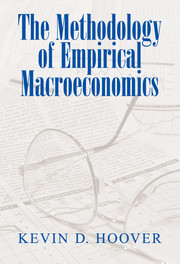4 - Causality in Macroeconomics
Published online by Cambridge University Press: 10 December 2009
Summary
In Pissarides's model – in either its theoretical or empirical versions – there are a number of variables, all related to each other through mathematical functions. A natural question is, which of these variables are the causes and which are the effects? (This is not restricted to particular models; the question can also be asked about the economy itself, independently of particular representations of it.) Now, what kind of question is that? To the man in the street – although he may never have thought about economics at all beyond wondering where his paycheck was coming from, how much the government was going to take from it, and how he might spend it – this seems a perfectly straightforward question. The commonsense notion of causation has to do with control or some variant of it: making things happen, recipes, and so forth. That my flipping the switch causes the light to come on means that I can use the switch as an instrument to control the light. My placing baking powder into a cake batter causes the cake to rise because baking powder is an instrument for leavening; which is to say that, were I to omit the baking powder, the cake would not rise. We learn causal relationships from babyhood, and they are essential to our making our way in the world. Nothing could be simpler or more straightforward.
But not to economists. Economists long ago ceased to regard the question “does A cause B?” as straightforward.
- Type
- Chapter
- Information
- The Methodology of Empirical Macroeconomics , pp. 89 - 134Publisher: Cambridge University PressPrint publication year: 2001
- 154
- Cited by



